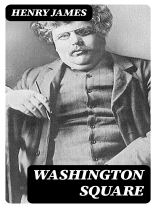In ‘Washington Square, ‘ Henry James presents a compelling exploration of social class, gender, and familial dynamics within the context of 19th-century New York City. The novel’s narrative revolves around the naive but determined Catherine Sloper, who grapples with her father’s domineering nature and her own longing for love and independence. James employs a rich, psychological realism, capturing the intricacies of character motivations and societal constraints, while also utilizing an incisive, elegant prose style that immerses readers in the emotional landscape of his protagonists. Set against the backdrop of a rapidly changing America, this story reflects James’s broader concerns about the ethical and moral dilemmas of his time, marked by an intricate examination of personal versus societal expectations. Henry James, an American expatriate and leading figure of literary modernism, was known for his acute psychological insight and sophisticated narrative techniques. Having spent significant time in Europe, he adeptly critiqued societal conventions while drawing from his own experiences of navigating the rigid class structures prevalent in both America and England. This contextual backdrop informs his portrayal of Catherine’s struggles as she faces the challenges posed by her social milieu and familial relationships. ‘Washington Square’ is a must-read for those interested in the nuances of character study and the exploration of societal norms. James’s masterful storytelling and deep psychological insight make this novel not only a poignant tale of personal struggle but also a profound commentary on the limitations imposed by societal structures. Readers will find themselves captivated by Catherine’s journey and will reflect deeply on the themes of love, ambition, and the quest for autonomy.
About the author
Henry James (1843–1916) was an acclaimed American-born writer known for his intricate prose and exploration of the consciousness of his characters. Often regarded as a key transitional figure between literary realism and literary modernism, James is celebrated for his psychological depth and keen social observation. Born in New York City to a wealthy family, he spent much of his life in Europe and ultimately settled in England, becoming a British subject in 1915. James penned numerous novels, short stories, and criticism, showing mastery in both narrative and theatrical styles. His novel ‘Washington Square’ is a poignant illustration of his talent, depicting the complex dynamics between a simple-hearted daughter and her controlling father, set against the backdrop of genteel New York society in the 19th century. With an oeuvre notable for its focus on international themes and the trans-Atlantic experiences, James’s narrative techniques, particularly his use of the interior monologue, greatly influenced 20th-century fiction. His extensive body of work includes major novels such as ‘The Portrait of a Lady’ and ‘The Golden Bowl, ‘ which affirm his place in the canon of Western literature. Awarded the Order of Merit by Britain, James’s legacy endures, and he remains a subject of study for his contributions to narrative form and his examination of morality, identity, and personal freedom.












